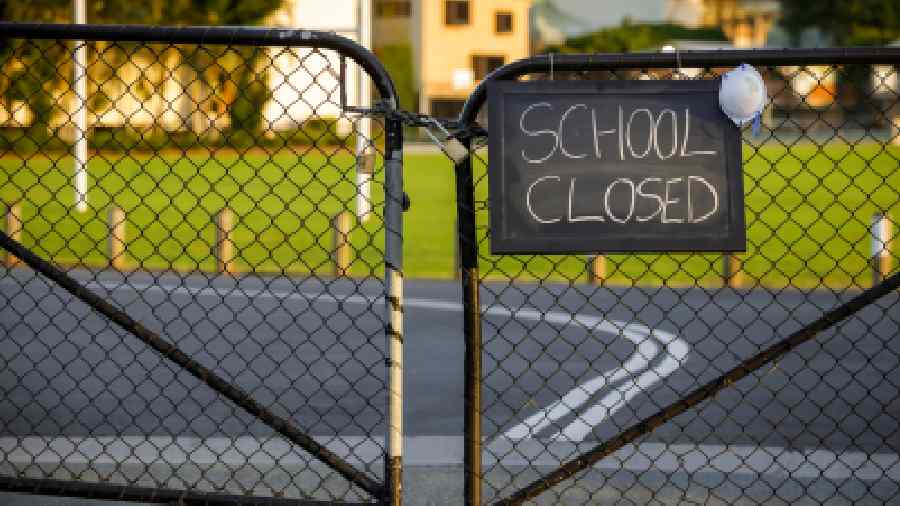Prescience can sometimes be utterly disappointing. In May, educational institutions were closed till June 15 so that students were spared the scorching heat. Predictably, on June 13, the West Bengal government extended the summer vacations till June 26, citing extreme temperatures. The mercury hovered around a comfortable 33 degrees Celsius on June 15 and dropped consistently during the rest of the week. The knee-jerk reaction to the ‘scorching temperature’ was not only uncalled for but it also had heads of schools protesting.
The Church of North India, which runs several schools in Calcutta, asked the heads of educational institutions to reopen from June 20 as the weather was no longer ‘extreme’. Had it done so on June 15, it would have earned a standing ovation. Many other private schools followed suit, reopening on Monday to almost a full house, although some others decided to toe the government advisory. The government should have reversed the call for closure when it was quite evident that the weather could not be cited as a factor. Is the meteorological department so unreliable that despite its satellites beaming in data about the impending monsoon, there was reason to believe that the temperatures prevailing on June 12 would continue their sizzle?
One government school teacher, cowering under the cloak of anonymity, said that there was huge pressure on them to declare a high pass percentage of students, although most of them deserved to fail. A no-detention policy was in place till Class VIII in government schools. Add to that the void of the pandemic years, and academic performance has been stymied by insurmountable odds. If classes are kept in abeyance (only a few schools moved to the online mode with alacrity), students fail to complete the syllabus. And, despite the government’s best efforts to declare them ‘passed’, some examinees still manage to fail in the higher secondary board exams. It is also a grim reflection of our times that instead of feeling penitent, these failed students have the temerity to take to the streets. In response, the chief minister has alleged that their protests were being instigated and the failed students were not to blame. Aren’t all the protests we constantly witness around us ‘instigated’?
In colleges and universities, students who did not have to appear for board exams at all last year, are demanding online examinations, simply because they are unprepared for an offline test. A classroom with an invigilator is, after all, a more difficult zone to navigate than an online multiple-choice question paper. When asked to write a paragraph, they feel so traumatised that remedial classes and consultations with mental health experts are necessitated. It is alarming that these youngsters comprise the workforce of the future, in an environment where work ethics are rarely adhered to. A shrinking job market and escalating competition make employment a Herculean task for students, most of whom are lured to school by schemes like midday meals and Kanyashree largesse, not any desire to learn.
Countless people whose earnings are associated with schools suffered a loss of livelihood from the extended school closure: pool cars, stationery shops, food vendors, school canteens, the rickshaw-puller ferrying students, to name a few. It would be understandable if students were deprived of classes for a natural calamity or any emergency. But a unilateral, unjustified whim, especially at a time the entire academic community was looking forward to the restoration of normalcy since Covid prevalence was low, was truly unfortunate.
Come June 26, will another excuse be proffered for more holidays? The weather, again, as the government counsel told the court hearing petitions on Monday? Those averse to the joys of nature should take a walk in the rain and allow better sense to prevail.

